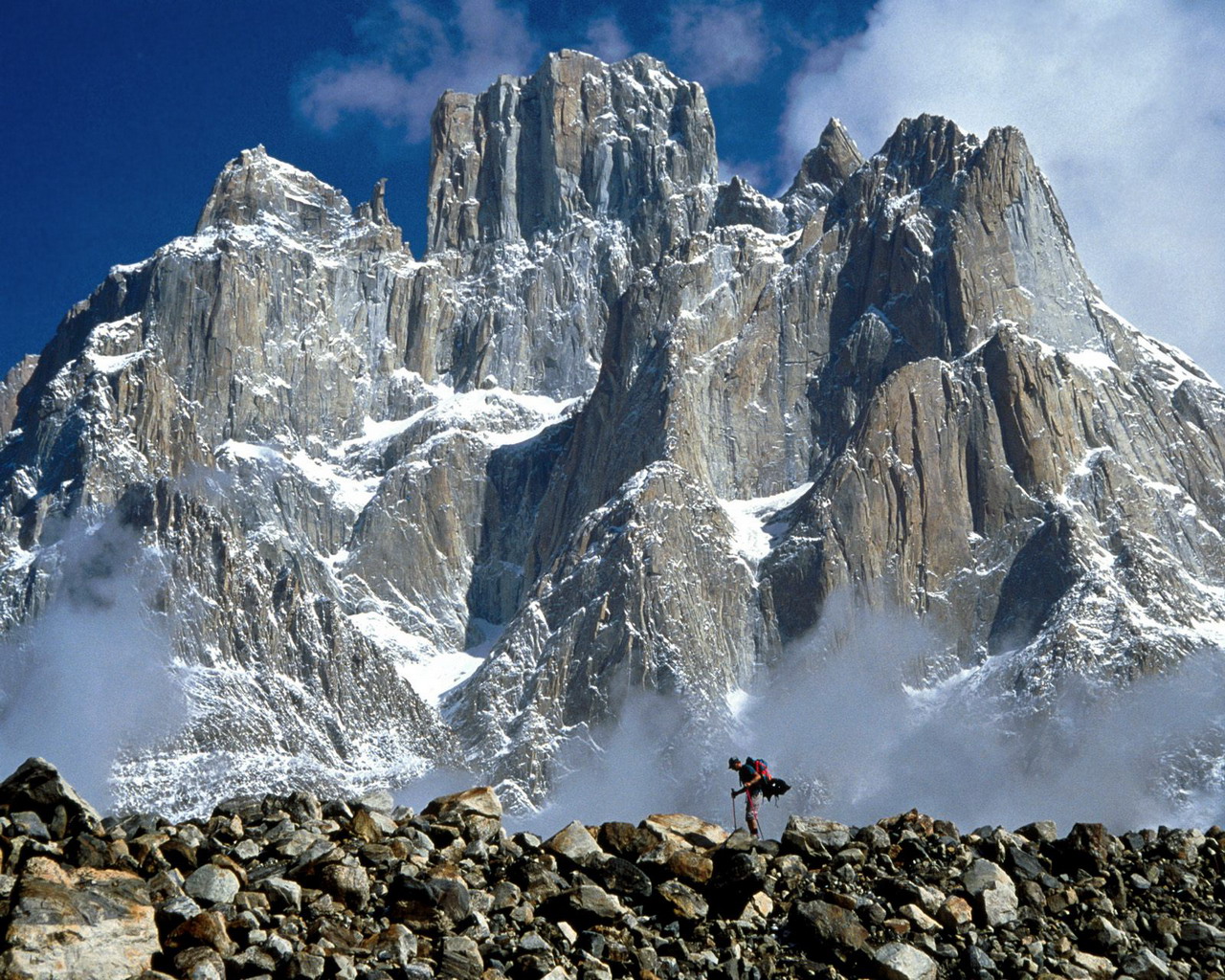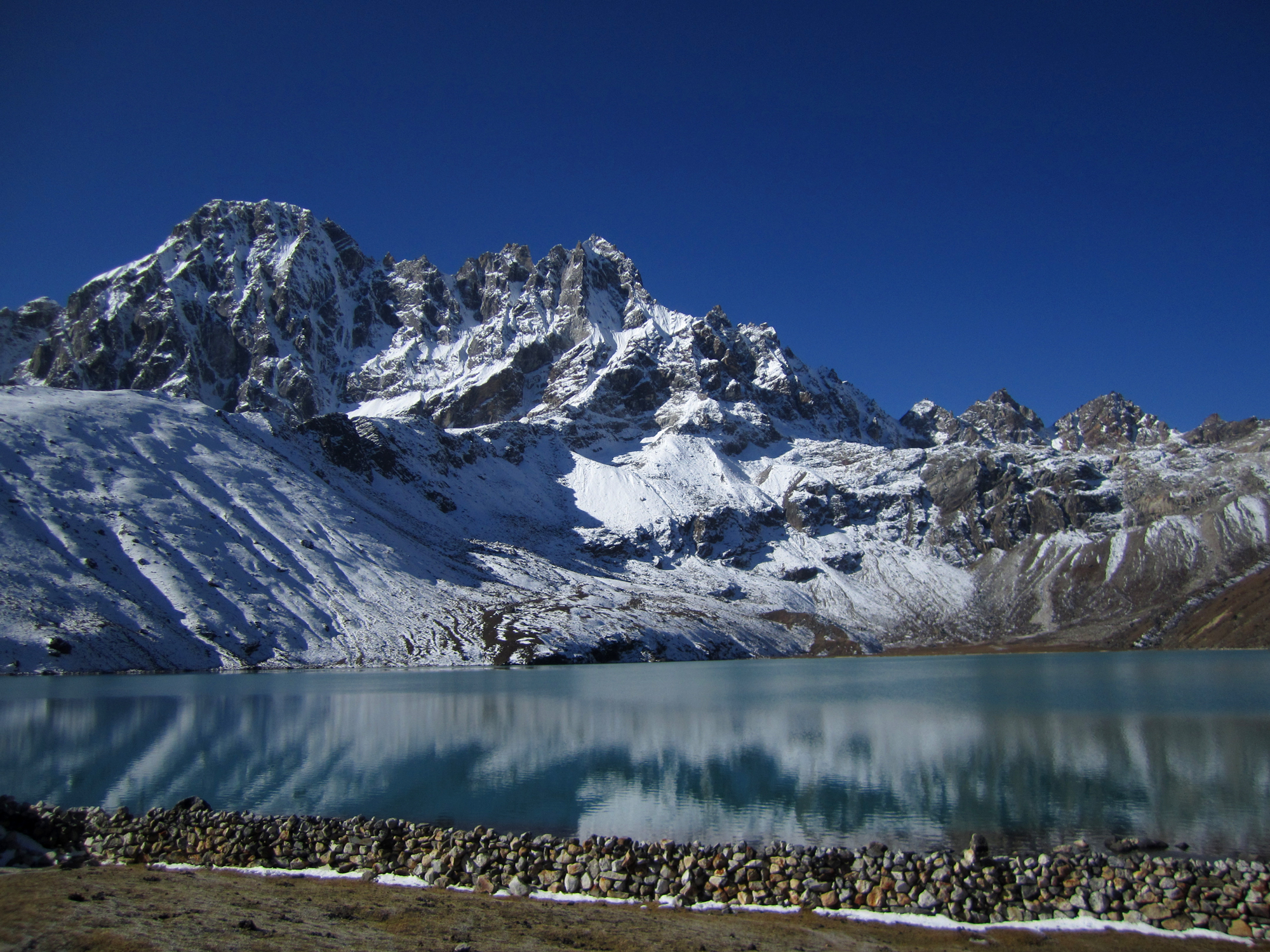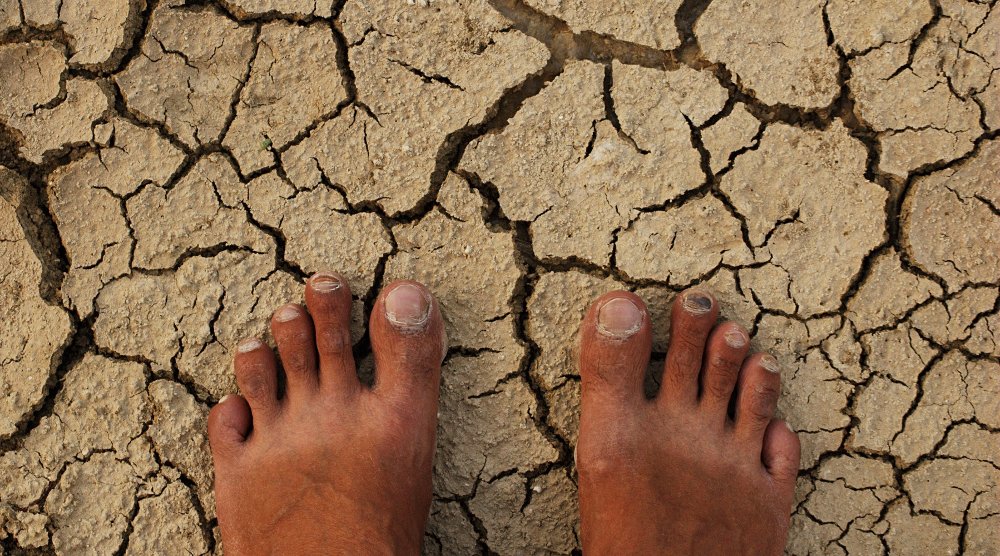
Unless we personally live in mountain regions, it is easy to view them simply as majestic yet distant features that are very removed from our day-to-day lives.
However this view overlooks the fact that mountains are vital in regulating and maintaining the global water cycle, without which, we could not survive.
“Mountain areas are some of the most important regions in the world and are environmentally, culturally, and economically fragile.” Download: Centre for International Environmental law, Mountain Laws And Peoples, 1997.pdf
Mountain regions and the biodiversity within these regions, perform crucial functions in regulating global water and climate. They store fresh water in the form of ice and snow and in lakes, wetlands and reservoirs.
“There is a complex interrelationship existing between mountains and lowlands in terms of freshwater quantity and quality. They represent an essential component of the global life-support system and are essential to the survival of the global ecosystem,” Download: UN ECOSOC, 1997, E/1998/68.pdf
Most of the worlds’ rivers originate in mountains and without healthy functioning mountain ecosystems; these rivers would cease to flow.

“Mountains and highlands are found on every continent, cover about a quarter of the Earth’s land surface and are home to 10% of the world’s people. Another 40% live in adjacent lower watershed areas; thus more than half the global population is directly or indirectly dependent on mountain resources and services, the foremost being water” View: UNU contribution to the Agenda 21, Chapter 13: Managing Fragile Ecosystems: Sustainable Mountain Development,1992.pdf
It is the rich variety of mixed biodiversity that once abundantly covered these regions, which performs so many functions enabling freshwater to be both conserved and carried around the Earth.
Unfortunately most of this mixed biodiversity from mountain regions has been removed worldwide. It now needs to be restored as a matter of utmost urgency.
“The degradation of mountain environments affects nearly half of the world’s population, including both highland and lowland communities, and poses a serious threat not only to the world’s water resources but also to biodiversity, food security and cultural diversity.” View: FAO, Preparations under way for the International Year of Mountains, 2002.pdf
The climate of Earth and the global water cycle are so closely interrelated that anything that impacts upon either one, naturally impacts upon the other.
Mountain regions are a crucial key towards securing both freshwater security and climatic stability for all countries of the world. Thus the survival of virtually all life on Earth is utterly dependent upon the services that these regions provide.
“The importance of seasonally and permanently frozen land surfaces extends far beyond surface hydrologic processes, however. These areas also interact significantly with the global weather and climate system, the geosphere, and the biosphere.” Download: USGCRP, A plan for a new science initiative on the global water cycle, chapter 2, 2001.pdf
The Mountain regions of the world form an interdependent, integrated global system. They need to be regarded, as ‘Global Commons’ and their ecosystems need to be conserved and restored in an interrelated manner, on a global scale. Repairing or conserving one mountain range such as the Alps and ignoring the others will not prove to be an adequate solution.
“Forests are an integral part of mountain ecosystems and significantly contribute to their key characteristics as water towers of the earth” Download: Hofer T and Zingaro Oierre Carlos, The Multiple Functions of forest in sustainable mountain development and the challenges of their management, 2002.pdf
Mountains urgently need to be dealt with in an interconnected holistic manner, as does the global water cycle.
“The Global Water Cycle is an integral part of the Earth/ Climate system; water vapor constitutes the Earth’s most abundant and important greenhouse gas, and water is its most active solvent.”
“Although mountains and uplands constitute about 20 per cent of the earth’s surface, it is difficult to find an area not affected by their environment. The most important influence is the hydrological cycle.” Download: UNEP, The challenges of mountain environments: Water, natural resources, hazards, desertification and the implications of climate change, 2002.pdf
Healthy mountains with snows and glaciers are the key to sustained and adequate fresh water supplies and the continued evolution of all species.
“The cryosphere (consisting of snow, ice and frozen ground) on land stores about 75% of the world’s freshwater. In the climate system, the cryosphere and its changes are intricately linked to the surface energy budget, the water cycle and sea-level change. More than one-sixth of the world’s population lives in glacier or snowmelt-fed river basins(Stern, 2007).” Download: Pan American Health Organization, Observed and projected changes in climate as they relate to water.pdf
This is an example of what is presently happening and is a global situation, happening throughout the Himalayas, Andes, the Alps and mountain regions throughout the whole world. This glacial recession is bringing about climate changes and water shortages globally. All of our families and both present and future generations are threatened. Hence we should do what we can to fix the problems as adaptation to a world without glaciers or freshwater is impossible.
“Climate change would be a less immediate threat, if we had kept pace with commitments to sustainable development enunciated again and again over the years.” Download: UN Millennium Development Goals Report New York 2008.pdf
Already too many people are suffering and their fate and ours is interwoven. Effective action needs to be taken now.

